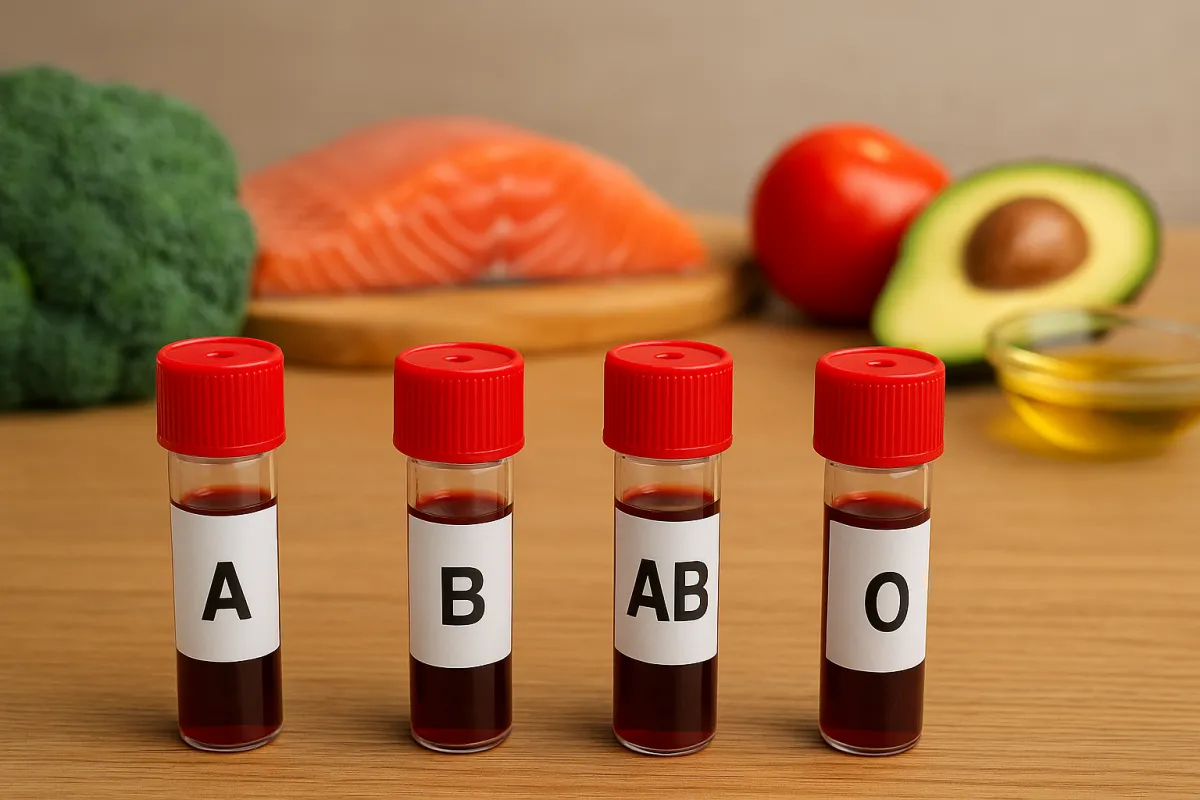
Blood Type Diet for Men: What the Science Actually Says
The Blood Type Diet: A Nutrition Myth Men Need to Stop Following
Among popular diet trends, the Blood Type Diet remains one of the most persistent. It has been promoted as a personalized nutrition strategy for decades. While it may appear scientific on the surface, the evidence does not support its claims.
This article outlines what the Blood Type Diet is, where it originated, and what the current body of research says about its effectiveness, especially for performance-focused men balancing work, training, and family responsibilities.
What Is the Blood Type Diet?
The Blood Type Diet was introduced in 1996 by Dr. Peter D’Adamo in his book Eat Right 4 Your Type. It proposes that individuals should eat according to their ABO blood type, suggesting that blood type influences how the body processes food.
The framework is as follows:
Blood Type Suggested Diet Classification O High-protein, meat-based “Hunter” A Primarily vegetarian “Cultivator” B Balanced, dairy-friendly “Nomad” AB Mixed/hybrid “Enigma”
The premise is that each blood type evolved at a different point in human history and therefore thrives on a diet aligned with ancestral eating patterns.

Scientific Evaluation of the Blood Type Diet
To date, no high-quality scientific studies have confirmed the validity of the Blood Type Diet. The theory has been evaluated in clinical and population-based studies with consistently negative results.
Wang et al., 2014 – PLOS ONE
This study analyzed over 1,400 participants and found no evidence that dietary patterns based on blood type had any health benefits. Improvements in health markers occurred regardless of blood type and were attributed to general healthy eating.
Cusack et al., 2013 – American Journal of Clinical Nutrition
This systematic review concluded that there were no studies providing valid evidence supporting blood type–specific diets.
Klimentidis et al., 2011 – Obesity
A study investigating the relationship between blood type and BMI, cholesterol, and glucose levels found no significant associations.
Why Some People Say It Works
Anecdotal success with the Blood Type Diet is common. However, most of the reported improvements are likely due to participants reducing processed foods, consuming more whole foods, and becoming more intentional about their eating habits.
In other words, benefits are not unique to blood type adherence but are instead reflective of general nutrition improvements.
Performance Nutrition and Evidence-Based Alternatives
For men managing demanding schedules and pursuing physical performance, nutrition should be structured around measurable goals and supported by research. Current evidence supports dietary frameworks built on the following principles:
Calorie and macronutrient intake aligned with training, body composition, and lifestyle goals
Nutrient timing strategies for optimizing recovery and cognitive performance
Individualization based on lab work, personal preferences, and performance feedback
Consistency and sustainability over theoretical or genetic-based recommendations
There is no evidence to suggest blood type should factor into these decisions.
Summary
The Blood Type Diet remains a widely known but scientifically unsupported theory. While the premise is appealing in its personalization, the research does not validate any health or performance advantages based on blood type.
Men seeking improved energy, body composition, and long-term performance outcomes are better served by adopting evidence-based strategies grounded in physiology, not pseudoscience.
Sources
Wang J et al. (2014). Blood Type Diet Study. PLOS ONE. https://doi.org/10.1371/journal.pone.0084706
Cusack L et al. (2013). Systematic Review. American Journal of Clinical Nutrition. https://doi.org/10.3945/ajcn.113.062729
Klimentidis YC et al. (2011). Blood Type and Obesity Risk. Obesity. https://doi.org/10.1038/oby.2011.139